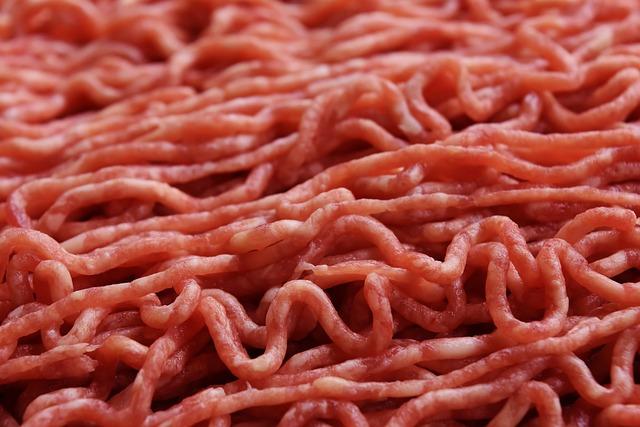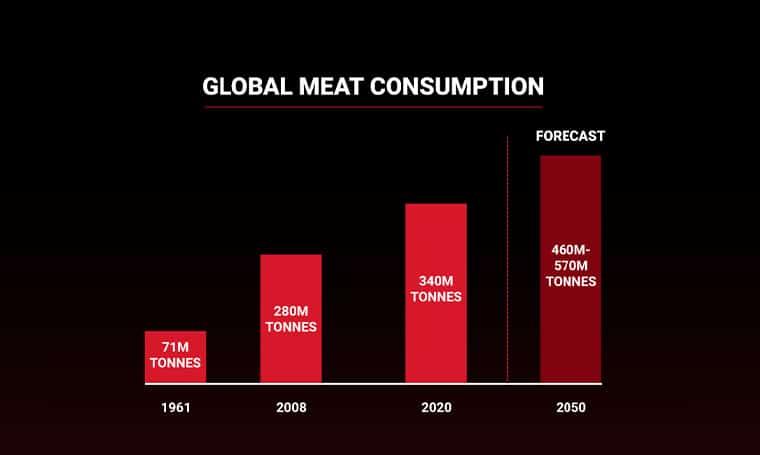In the quest for optimal health and peak physical performance, fitness enthusiasts are often bombarded with a plethora of dietary advice, each claiming to be the key to unlocking the ultimate body and mind. Among these dietary debates, one question continues to sizzle at the forefront of nutrition discourse: should fitness enthusiasts avoid red meat for better health? Red meat, a staple in many diets, is celebrated for its rich protein content and essential nutrients, yet simultaneously scrutinized for potential health risks. As science evolves and new studies emerge, the line between beneficial and detrimental becomes increasingly blurred. This article delves into the complex relationship between red meat consumption and fitness, unraveling the latest research and expert opinions to guide those striving for a harmonious balance between strength and wellness. Join us as we explore whether red meat should be revered or reconsidered in the pursuit of health excellence.
Exploring the Nutritional Profile of Red Meat
When it comes to the nutritional aspects of red meat, there’s a lot to chew on. Packed with essential nutrients, red meat offers a variety of benefits that are often overlooked. Rich in high-quality protein, it supports muscle growth and repair, which is crucial for fitness enthusiasts. Additionally, it is a significant source of iron, zinc, and B vitamins, all of which play vital roles in energy production and overall well-being. Iron, in particular, is crucial for athletes as it helps in oxygen transportation and prevents fatigue.
- Protein: Essential for muscle repair and growth.
- Iron: Supports oxygen transportation and energy levels.
- Zinc: Aids in immune function and protein synthesis.
- B Vitamins: Important for energy metabolism.
However, moderation is key. While red meat can be part of a balanced diet, excessive consumption may lead to health concerns. Fitness enthusiasts should consider the type and portion size of red meat, opting for lean cuts and incorporating a variety of protein sources. By balancing their diet with plant-based proteins and other lean meats, they can enjoy the benefits of red meat while minimizing potential risks.
Balancing Protein Intake with Plant-Based Alternatives
For fitness enthusiasts exploring dietary options beyond red meat, the world of plant-based proteins offers a vibrant and nutritious palette. Plant-based alternatives not only provide essential amino acids but also come packed with fibers, vitamins, and minerals, making them an excellent choice for those seeking a balanced diet. Embracing these alternatives can lead to a more varied and colorful meal plan that supports muscle growth and overall health.
- Legumes: Beans, lentils, and chickpeas are protein powerhouses, rich in fiber and iron.
- Quinoa: This ancient grain offers a complete protein profile, containing all nine essential amino acids.
- Nuts and Seeds: Almonds, chia seeds, and hemp seeds provide healthy fats alongside protein.
- Tofu and Tempeh: Derived from soybeans, these are versatile options for creating protein-rich meals.
Incorporating these plant-based options can help fitness enthusiasts maintain a robust protein intake while potentially reducing the risks associated with high red meat consumption. With a plethora of delicious recipes and combinations, the journey towards a balanced diet has never been more exciting.

The Role of Red Meat in Muscle Building and Recovery
Red meat, often scrutinized for its potential health impacts, plays a significant role in muscle building and recovery. Its high-quality protein content, packed with essential amino acids, makes it an excellent source for muscle repair and growth. For those engaged in regular intense workouts, red meat can be a powerhouse of nutrients. Here are some of the key benefits:
- Rich in Protein: Red meat provides a complete protein profile, which is crucial for muscle synthesis.
- Iron Boost: The heme iron found in red meat is easily absorbed by the body, aiding in oxygen transport and energy production.
- Creatine Content: Naturally occurring in red meat, creatine enhances strength and performance during high-intensity training.
- Vitamin B12: Essential for energy metabolism, Vitamin B12 supports the conversion of food into fuel.
While red meat offers these benefits, it is important to consume it in moderation and opt for lean cuts to minimize saturated fat intake. Balancing it with other protein sources and a variety of foods ensures that fitness enthusiasts reap the benefits without compromising their health.

Practical Tips for Moderating Red Meat Consumption
For those looking to balance their fitness goals with a healthier lifestyle, moderating red meat consumption can be a strategic move. Here are some practical tips to help you achieve this balance:
- Choose Lean Cuts: Opt for cuts like sirloin, tenderloin, or flank steak. These options are lower in fat, making them a better choice for those watching their intake.
- Incorporate Plant-Based Alternatives: Introduce legumes, tofu, or tempeh into your meals. These alternatives can provide protein without the additional saturated fats found in red meat.
- Practice Portion Control: Limit your red meat serving to about the size of a deck of cards. This helps manage calorie intake while still allowing you to enjoy your favorite dishes.
- Plan Meat-Free Days: Designate one or two days a week as meat-free to explore new recipes and ingredients. This not only diversifies your diet but also reduces your overall red meat consumption.
Implementing these tips doesn’t mean you have to eliminate red meat entirely. Instead, it encourages a more thoughtful approach to your dietary habits, aligning with your fitness and health objectives.
